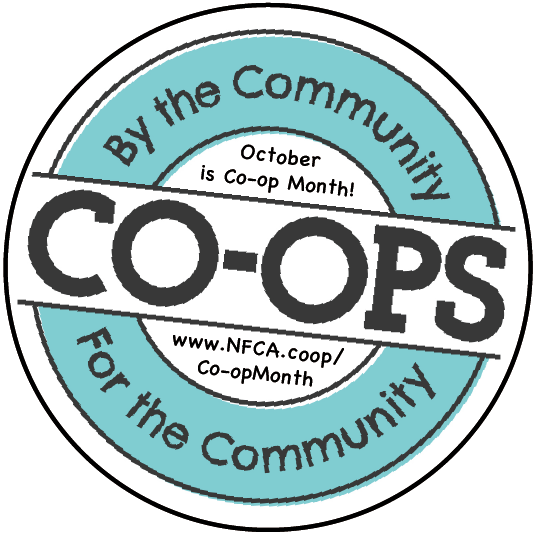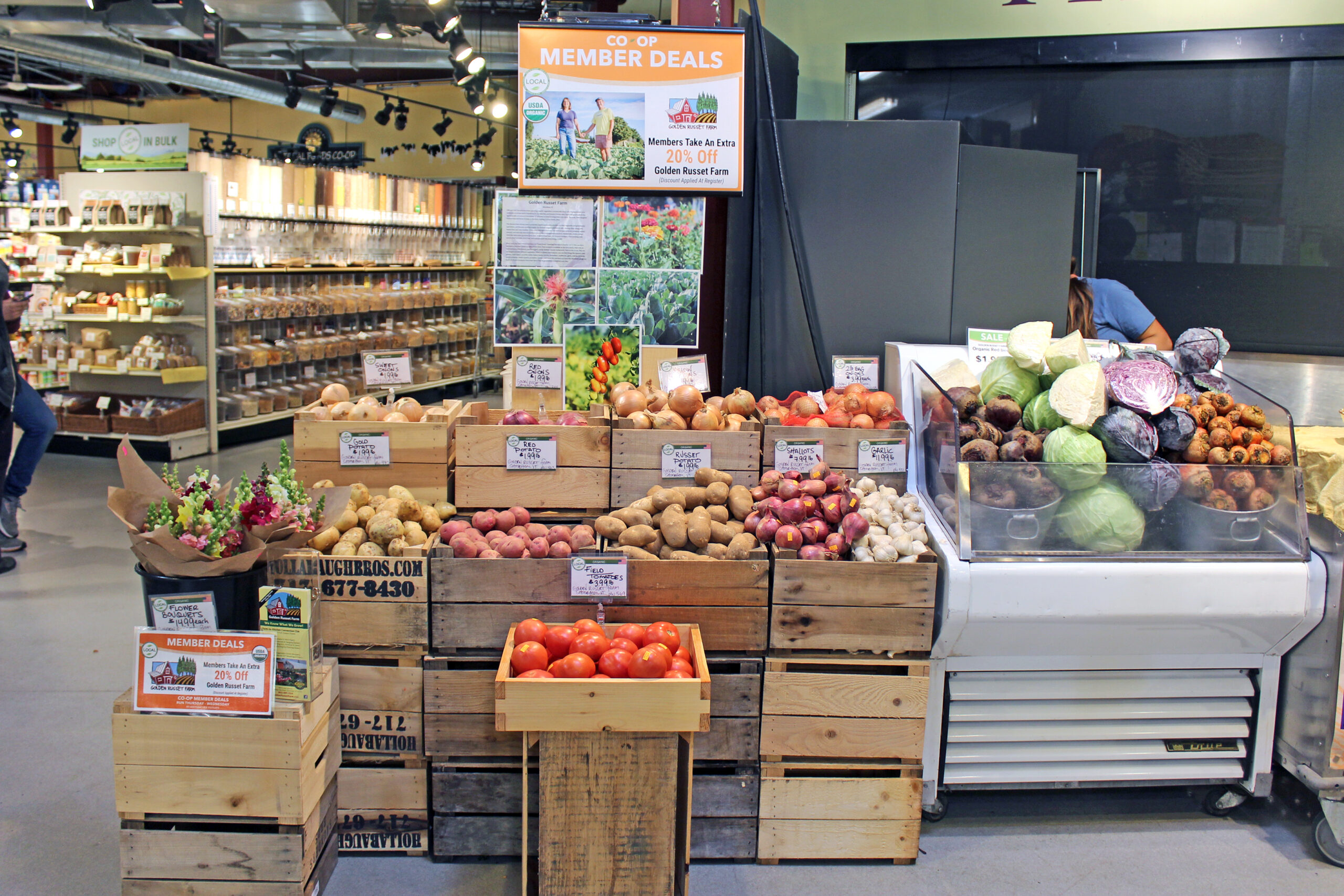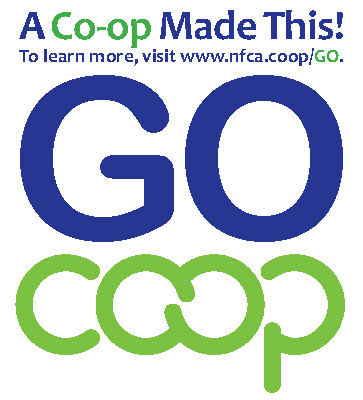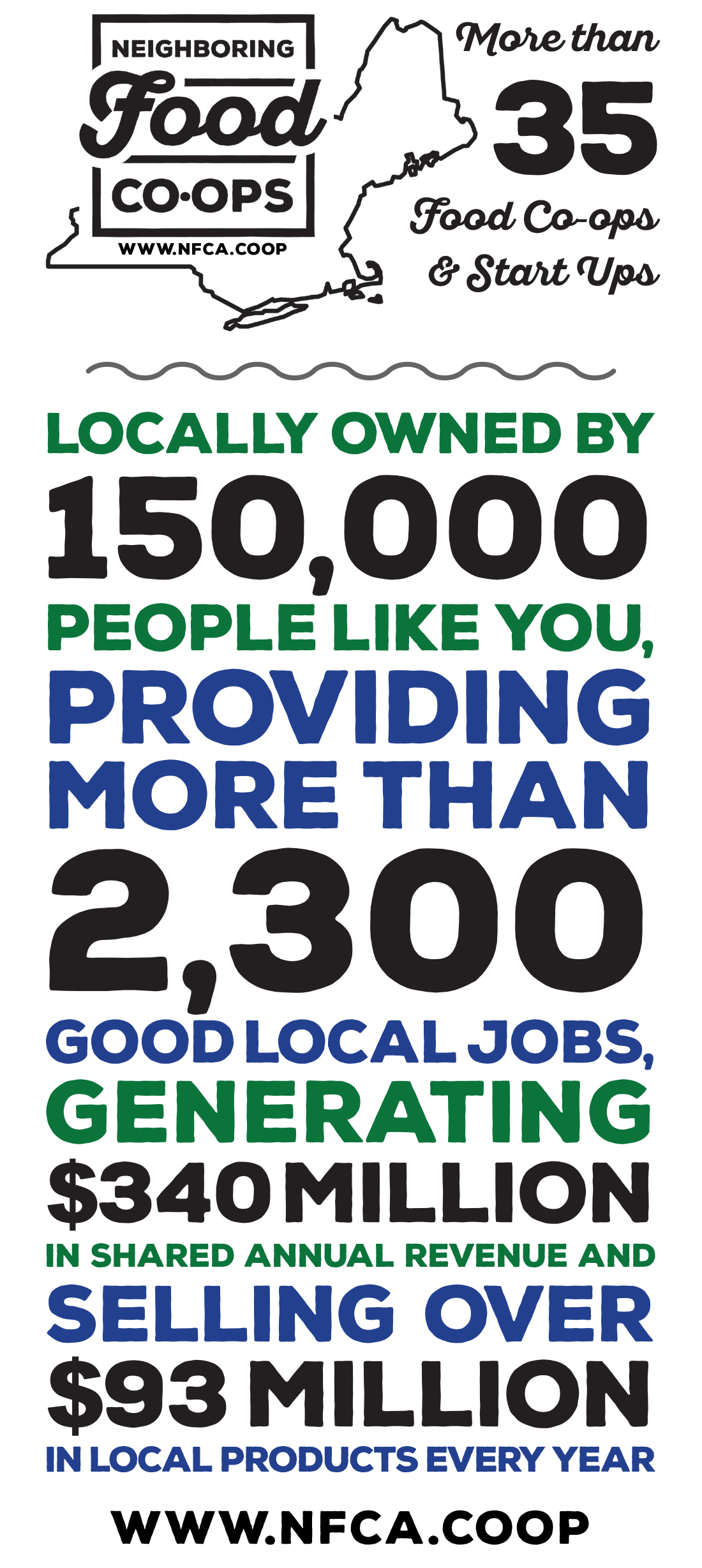
Celebrate Co-op Month!
Every October, cooperatives across the United States join the National Cooperative Business Association in celebrating Co-op Month. The theme for 2019, “Co-ops: By the Community, for the Community,” is a celebration of how co-ops enable people to work together to meet their needs and build stronger communities.

Across the Northeast, people have used food co-ops to improve access to healthy, local, affordable food. While most of these grocery stores got their start more than 30 years ago some began in the 1930s and ’40s, and a new wave of start-ups have opened their doors in the past ten years, representing a renewed interest in food security and community ownership. Today, the Neighboring Food Co-op Association (NFCA) includes over 35 food co-ops and start-ups, locally owned by more than 150,000 members and employing over 2,300 people. Together, these co-ops generate shared annual revenue of $340 million, including sales of $93 million in local products.

Our Co-op, founded over 40 years ago, is proud to work with more than 300 local farmers and producers to keep our shelves well-stocked with local foods. Last year, 34% of our store sales represented purchases of local products. This means that the hardworking local farmers and producers in our community have a stable retail market for their wares and your purchases ensure that they can continue to thrive doing the work that they love. But the impact goes well beyond that. Vermont’s dynamic local food system is made up of a diverse range of farmers and food producers including dairy farmers, farmers of fruits & vegetables, livestock, hay, maple products, and specialty crops like hemp; and it also includes thousands of entrepreneurs creating a variety of value-added products (e.g., cured meats, baked goods, beer, chocolate); sophisticated distribution networks; and dozens of organizations that provide business planning, technical assistance, education, and outreach services for these local farmers and producers. So when you’re buying local products, your hard-earned food dollars are supporting so much more than the individual farmer or producer, plus you’re keeping your money circulating within your own community in an impactful way.

Another exciting way that our Co-op is able to cultivate community is by giving back. Last year, our Co-op donated over 7 tons of food to our local food shelves, representing a dollar value of $96,527. Thanks to your patronage and willingness to round-up your purchases during our quarterly Rally For Change events, we passed along over $12,818 dollars to Addison County-based non-profit organizations that serve at-risk populations. Last year’s Empty Bowl dinner raised $2,244 for local food shelves, HOPE and CVOEO, and the September Share the Harvest partnership with NOFA-VT allowed us to pass along $1,844 to purchase local farm shares for community members in need. We were also able to donate gift cards to each and every Addison County-based non-profit that reached out to us seeking support for various raffles, fundraisers, and community events, totaling over $20,000. Being a community-owned, not-for-profit grocery store allows us to share our profits back to the community in a meaningful way that benefits all.
Food co-ops are not alone in their contribution to more resilient local communities. From farmer co-ops to worker co-ops, credit unions to artist co-ops, and housing co-ops to energy co-ops, cooperative businesses thrive across the U.S. economy, where 350 million people are co-op members. Nationwide, cooperatives generate $514 billion in revenue and more than $25 billion in wages, according to a study conducted by the University of Wisconsin Center for Cooperatives. And because they are member-owned, co-ops are rooted in their communities and governed by the people who use them to meet their needs.

Throughout Co-op Month, we’ll be featuring special sales and promotions on many of our favorite co-op-made products. Just look for the “Go Co-op” signs on the shelves that identify products that were made by our Co-op or other cooperatives. You may be surprised what you find, including dairy products from Cabot Creamery Co-op and Organic Valley; fairly traded fresh produce, chocolate, and coffee from Equal Exchange; fairly traded quinoa and chocolates from Alter Eco; naturally fermented vegetables from Real Pickles; body care products from Alaffia; and wine from La Riojana! You’ll also find that many of these products are part of our Co-op Basics program at everyday low prices that keep them within reach for any budget.
To learn more about the history of the cooperative movement and the impact that co-ops have in their communities, visit nfca.coop. And thank you for supporting your locally-owned, locally-grown Co-op!

